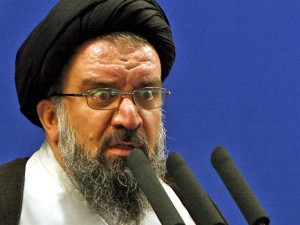January 10-2014
by Warren L. Nelson
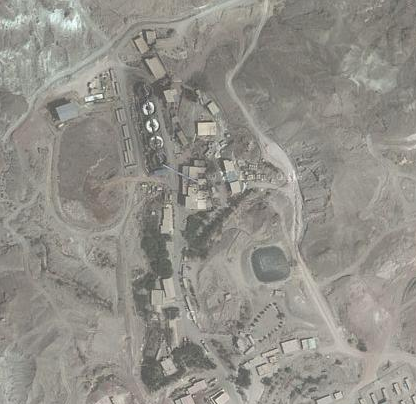
It appears that a band of hardliners tried to elbow their way into the nuclear negotiations last week, but were finally muscled off to the side.
Last Wednesday, both the Fars and Mehr news agencies reported that a supervisory council overseeing the nuclear negotiating team headed by Foreign Minister Mohammad-Javad Zarif had been created to give representatives of “all branches of power and other senior figures” an oversight role.
The news reports named no one. But they said two hardline deputies in the Majlis had been named to the supervisory council.
Mehr quoted hardline Deputy Esmail Kowsari as saying, “The team supervising the nuclear negotiations will be strengthened for the next round of talks. Things were not in our favor in the last round as they should have been.”
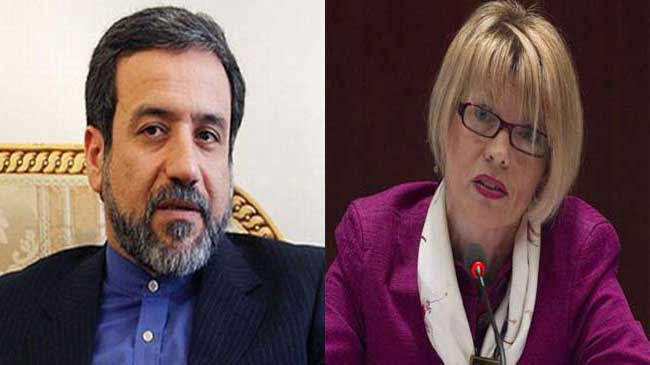
. . . meeting this week to finish deal
Hardliners have complained that Zarif made too many concessions to the West and got very little in return in the interim agreement signed November 24.
President Rohani has emphasized that Supreme Leader Ali Khamenehi publicly approved the agreement only hours after it was reached, implying that criticism of the agreement amounts to criticism of the Supreme Leader.
Mehr said the supervisory council now includes three Majlis deputies, one representative of President Rohani, one from the Judiciary and one from the Atomic Energy Organization of Iran. If that is correct, the original committee was divided two-two between people under Rohani’s control and people he could not control. The new breakdown would be 4-2 against Rohani.
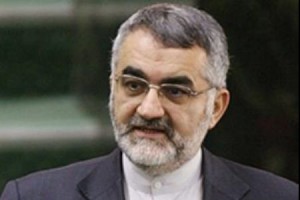
. . . what council?
None of the news reports made clear what powers this council had: could it issue orders to the negotiators or was it purely advisory?
Supporters of the Administration said there was no need for any such council since the negotiators operate under the direct review of the Supreme Leader himself.
Four days passed with Kowsari being the sole person cited by name as describing the council and its expansion.
Then on Sunday, Alaeddin Borujerdi, the chairman of the Majlis National Security Committee, said he knew nothing about any supervisory council let alone any expansion with new Majlis deputies added. He told reporters that Khamenehi personally oversees the talks and there was thus no need for any supervisory council.
He told reporters, “We try to maintain national unity and integrity so the enemy will not think we are at odds.” That hinted that Khamenehi was displeased at the growing volume of criticism of the talks and Zarif’s conduct of them.
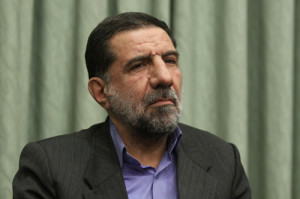
. . . there’s a council
The next day, Monday, Deputy Foreign Minister Abbas Araqchi told reporters almost the same thing. He said he was unaware of any such supervisory body. He said the long-standing Supreme National Security Council (SNSC), which is chaired by the president and has several Majlis deputies on it, has always overseen all foreign policies and has the supervisory role in the nuclear talks as well.
With that, all talk of a council appeared to die.
The unanswered question is just what happened in the four days between January 1, when the news reports on the council appeared, and January 5, when Borujerdi said he knew nothing of any such council.
There was speculation that the January 1 stories incensed members of the SNSC who thought they were being brushed aside and irritated Khamenehi’s staff, who felt some untrustworthy people were trying to muscle their way in. They may all have lobbied Khamenehi in the intervening days and got him to kill the entire supervisory idea.
The details of the November 24 agreement still have not been finalized. Araqchi says they are down to just “one or two” elements remaining to be resolved. He said he would meet this Thursday and Friday, January 9 and 10, with Helga Schmid, his opposite number at the EU as the deputy to Catherine Ashton, the EU foreign policy chief, and hoped to settle those outstanding issues then.
The working level group from Iran and the Big Six, which met in early December and again in mid-December, met again Monday January 30 and resolved many issues, but not all of them. In fact, the Monday meeting went beyond dawn Tuesday, New Year’s Eve, as the officials tried to resolve everything before breaking for the holiday. They said they met a total of 23 hours.
The Islamic Republic News Agency (IRNA) quoted Hamid Baeedinejad, the head of the Iranian team at the working level meetings, as saying one thing that was agreed on was that the agreement would take effect January 20 with the six-month clock for the interim agreement starting then.
But the Americans soon said no start date had yet been agreed to since there were still those outstanding issues Araqchi and Schmid had to tackle. January 20 has become the target date, however, because that is when the foreign ministers of the EU will hold their next monthly meeting and could vote on the package.
Meanwhile, Ali-Akbar Salehi, the head of the Atomic Energy Organization of Iran, announced that inspectors from the International Atomic Energy Agency (IAEA) would come to Iran to inspect the Gachine uranium mine later this month. That is one of the six points on which Iran agreed with the IAEA in November. One of the other points was IAEA access to the Arak heavy water plant, which was inspected for the first time last month.
In another development, President Rohani last week named his deputy, Eshaq Jahangiri, to head a task force assigned to combat those who are taking advantage of sanctions to drive up prices and pad their profits.























